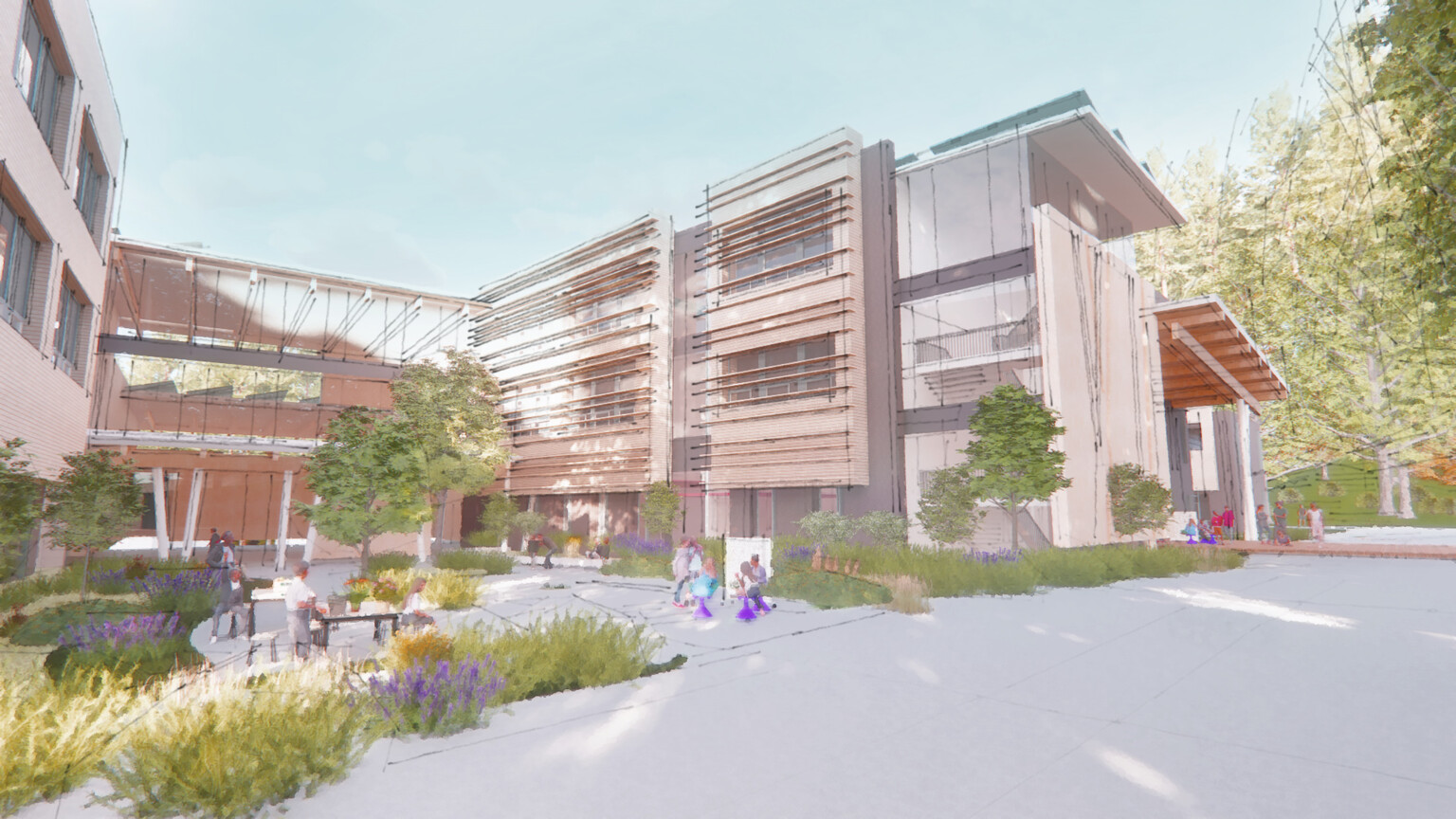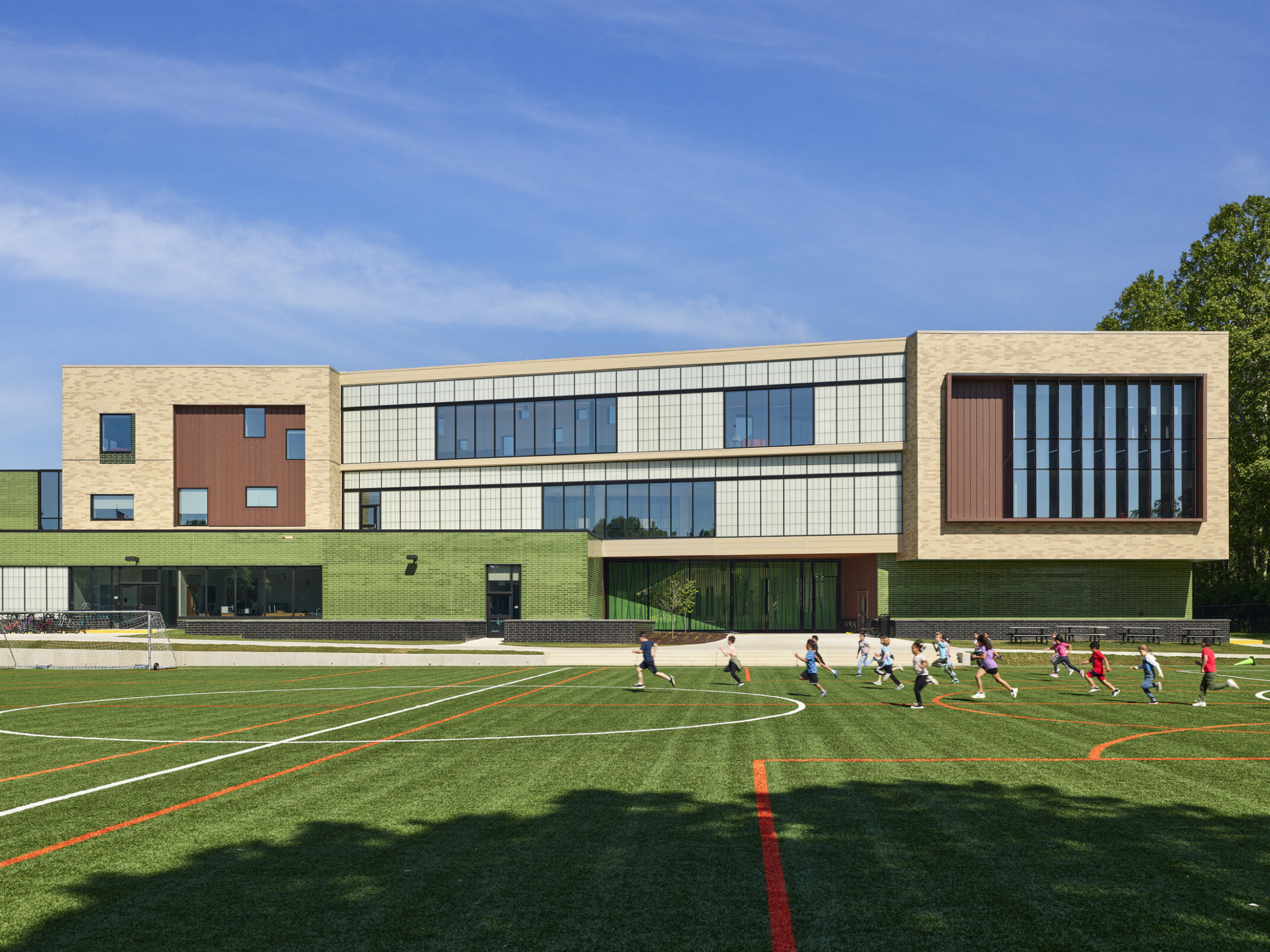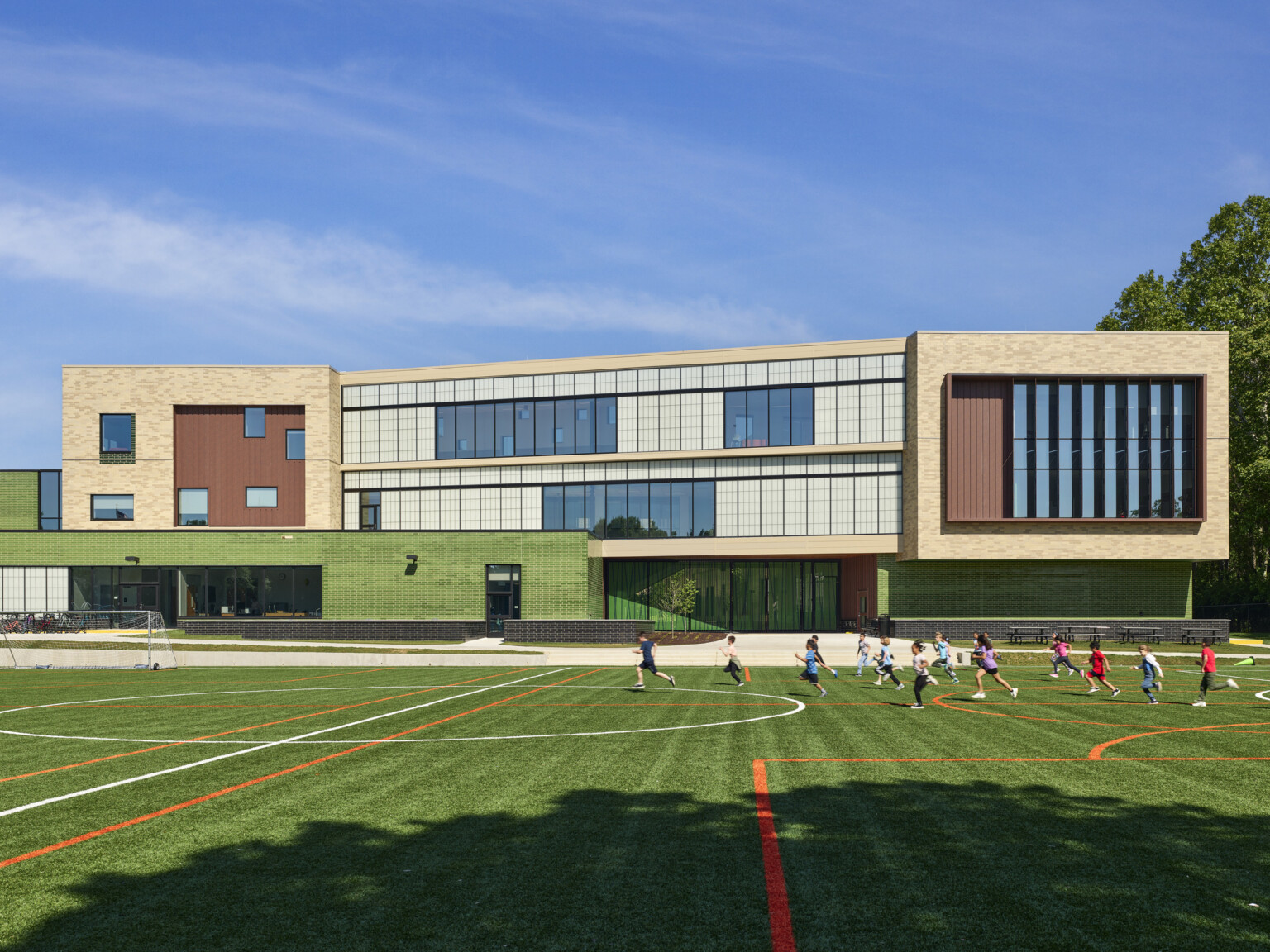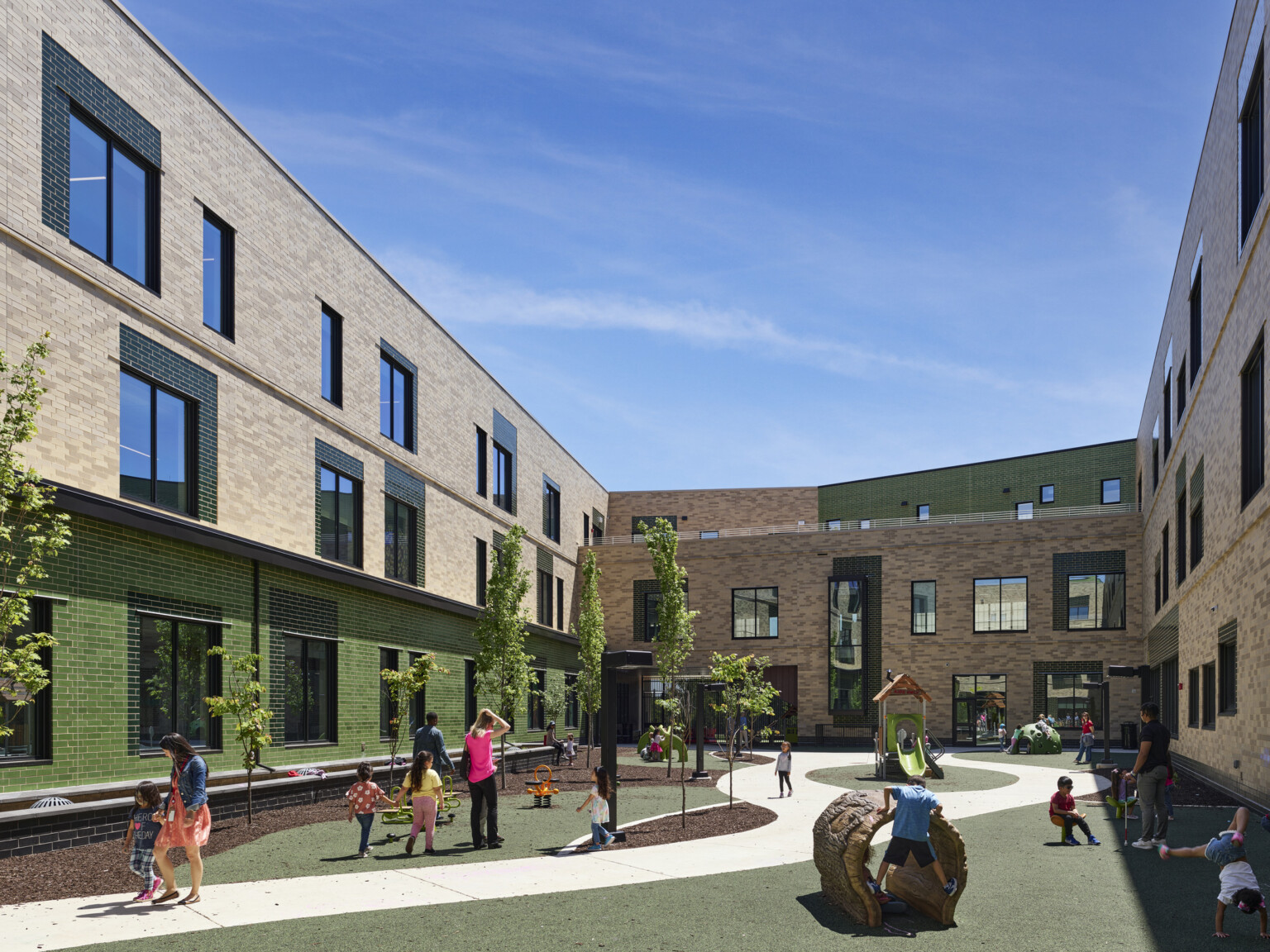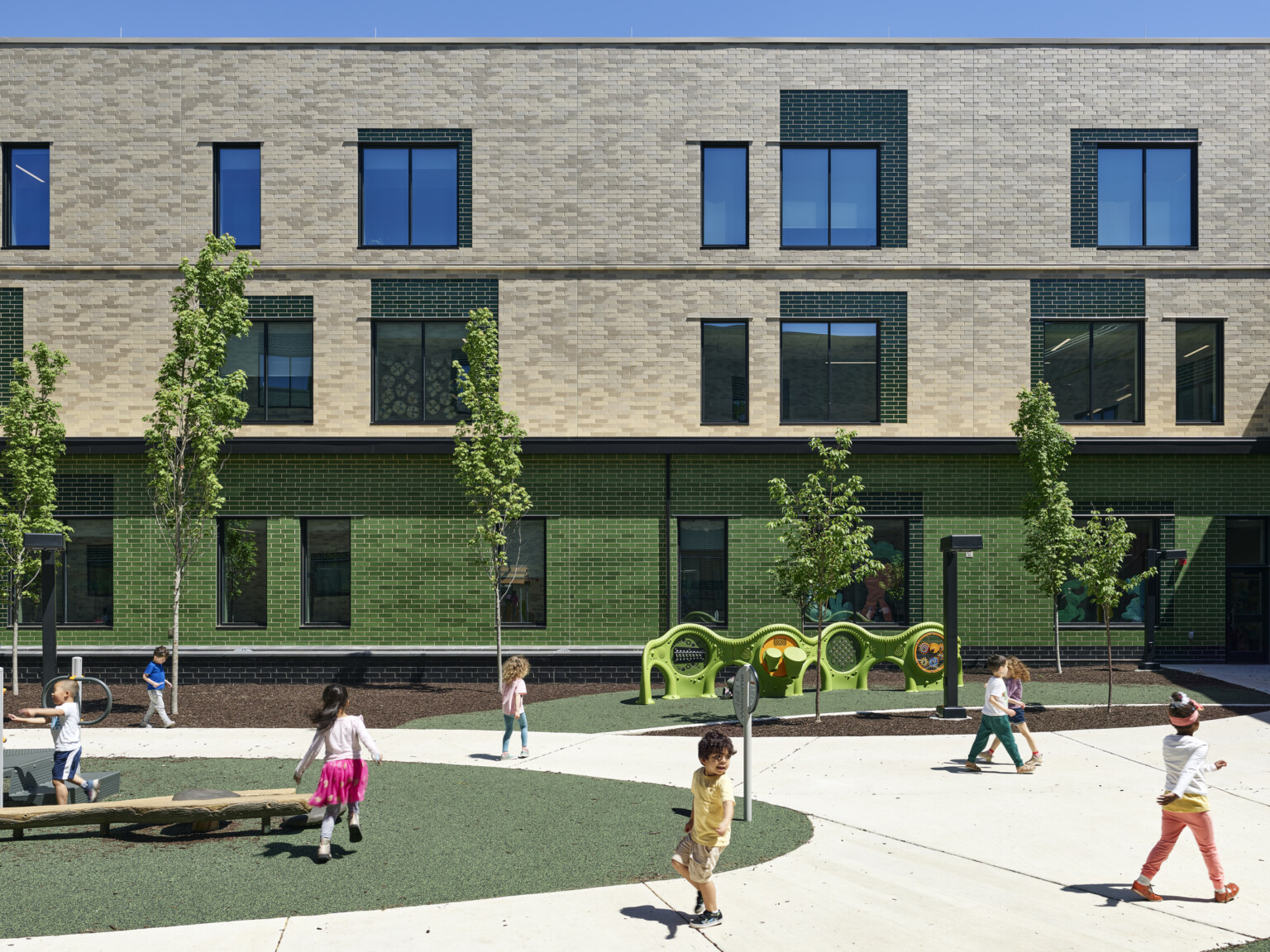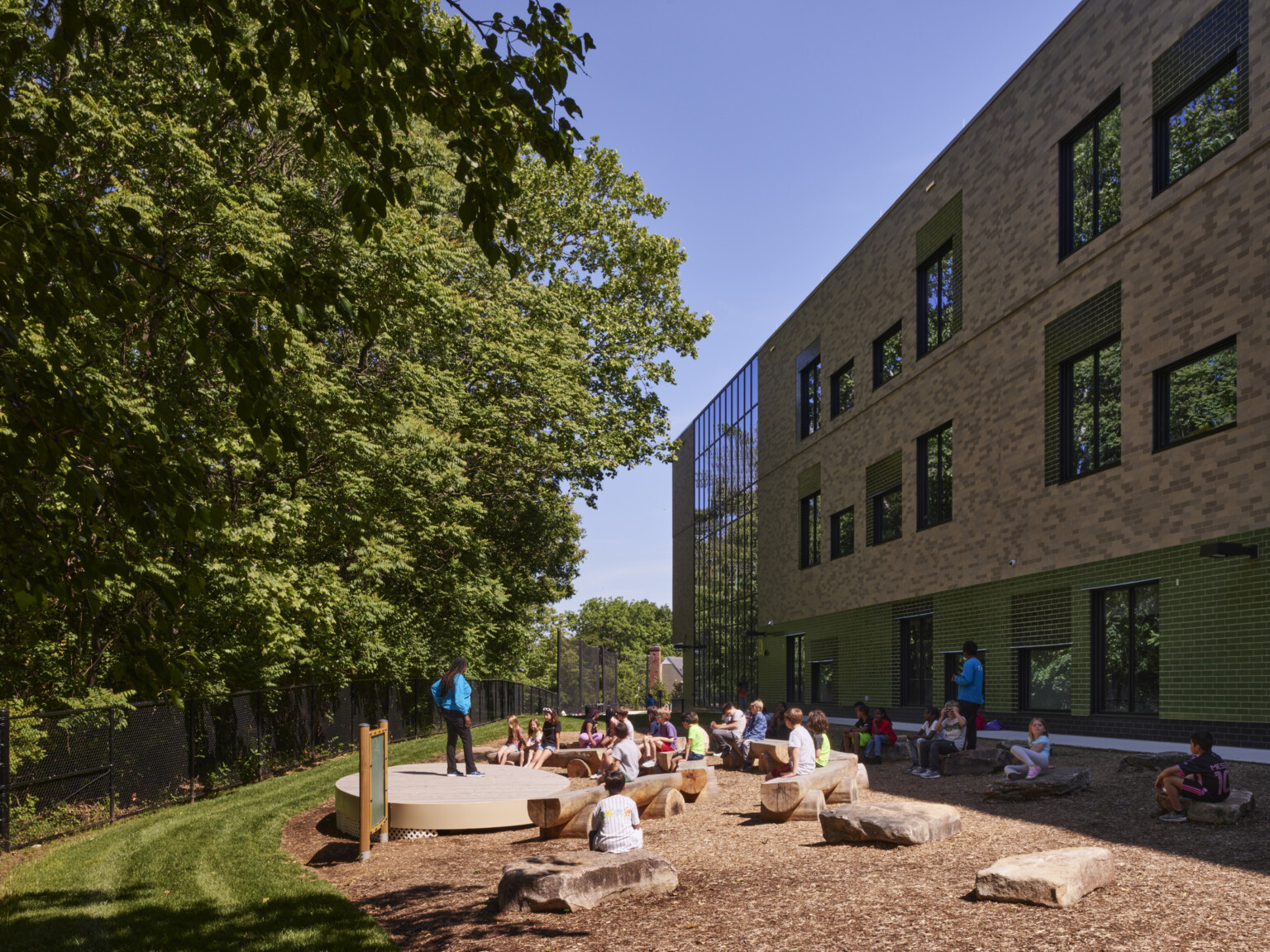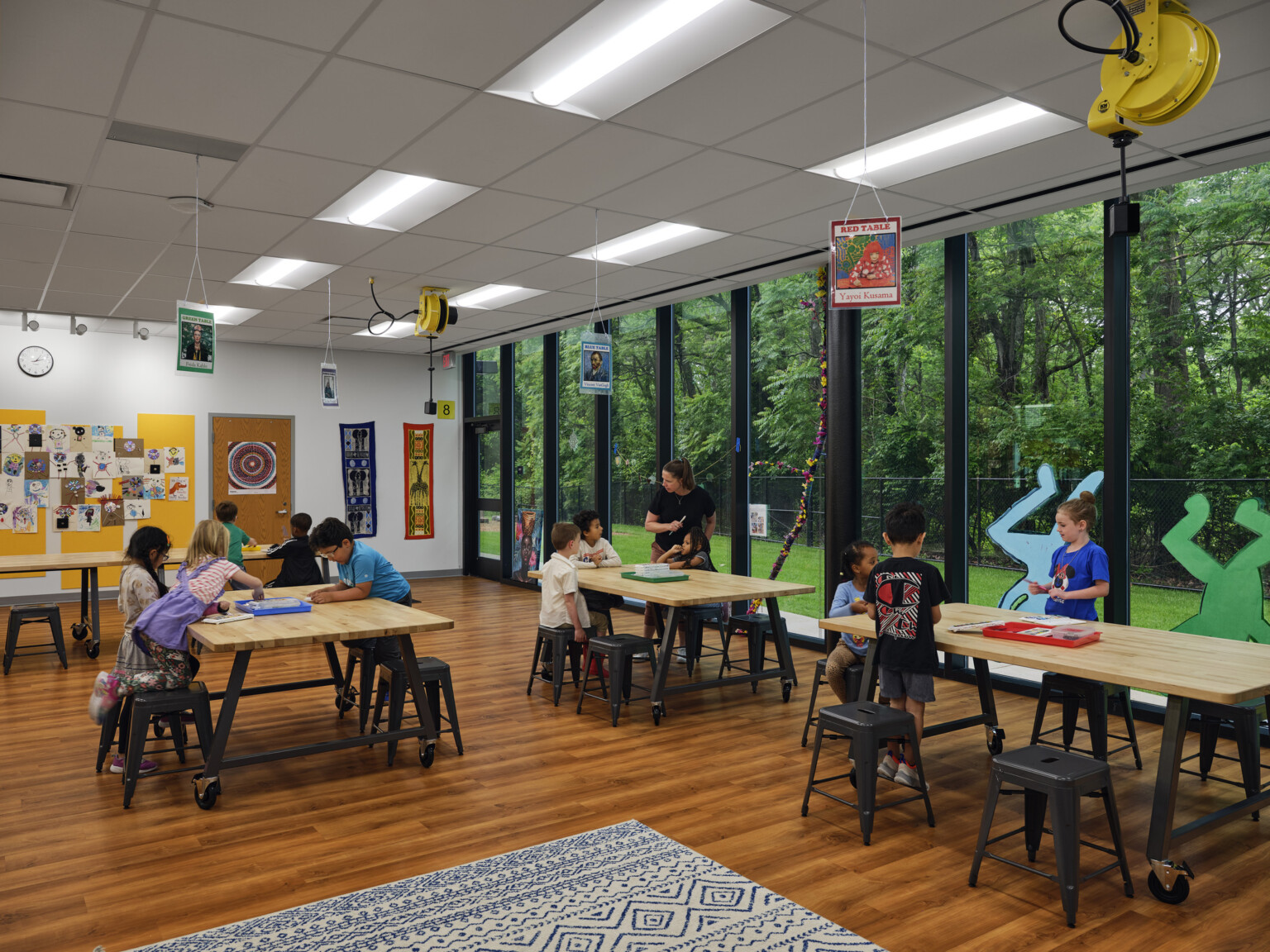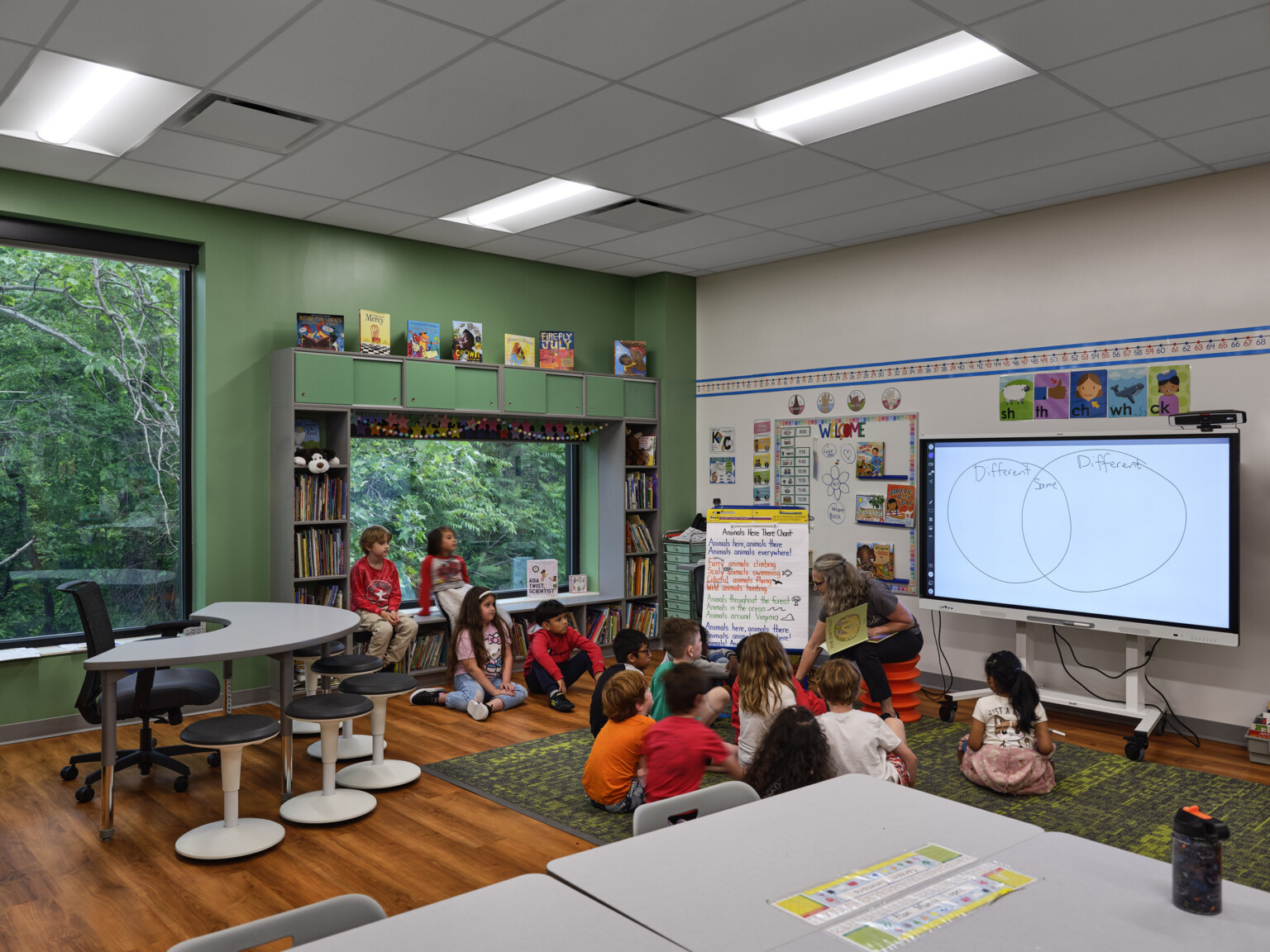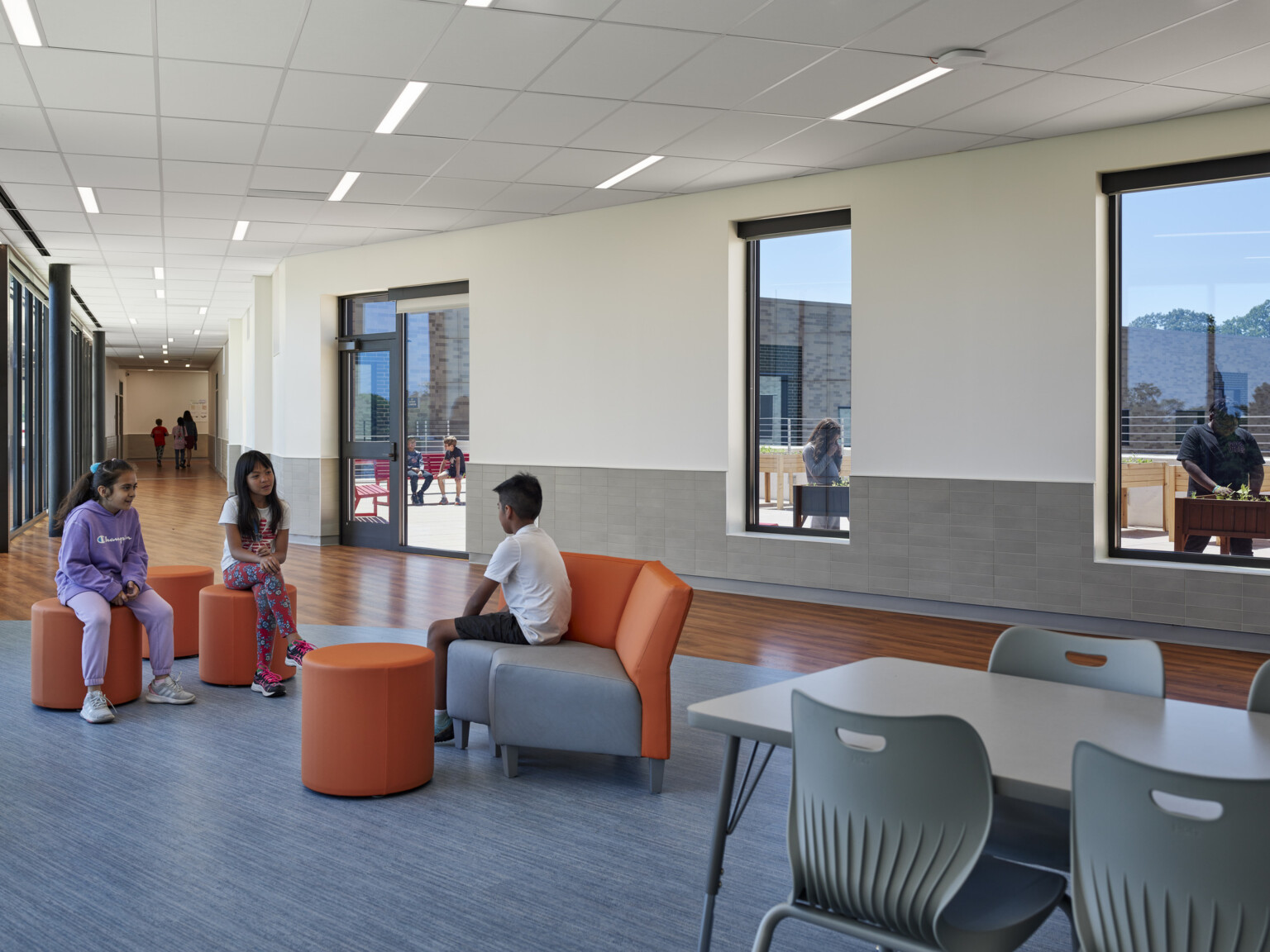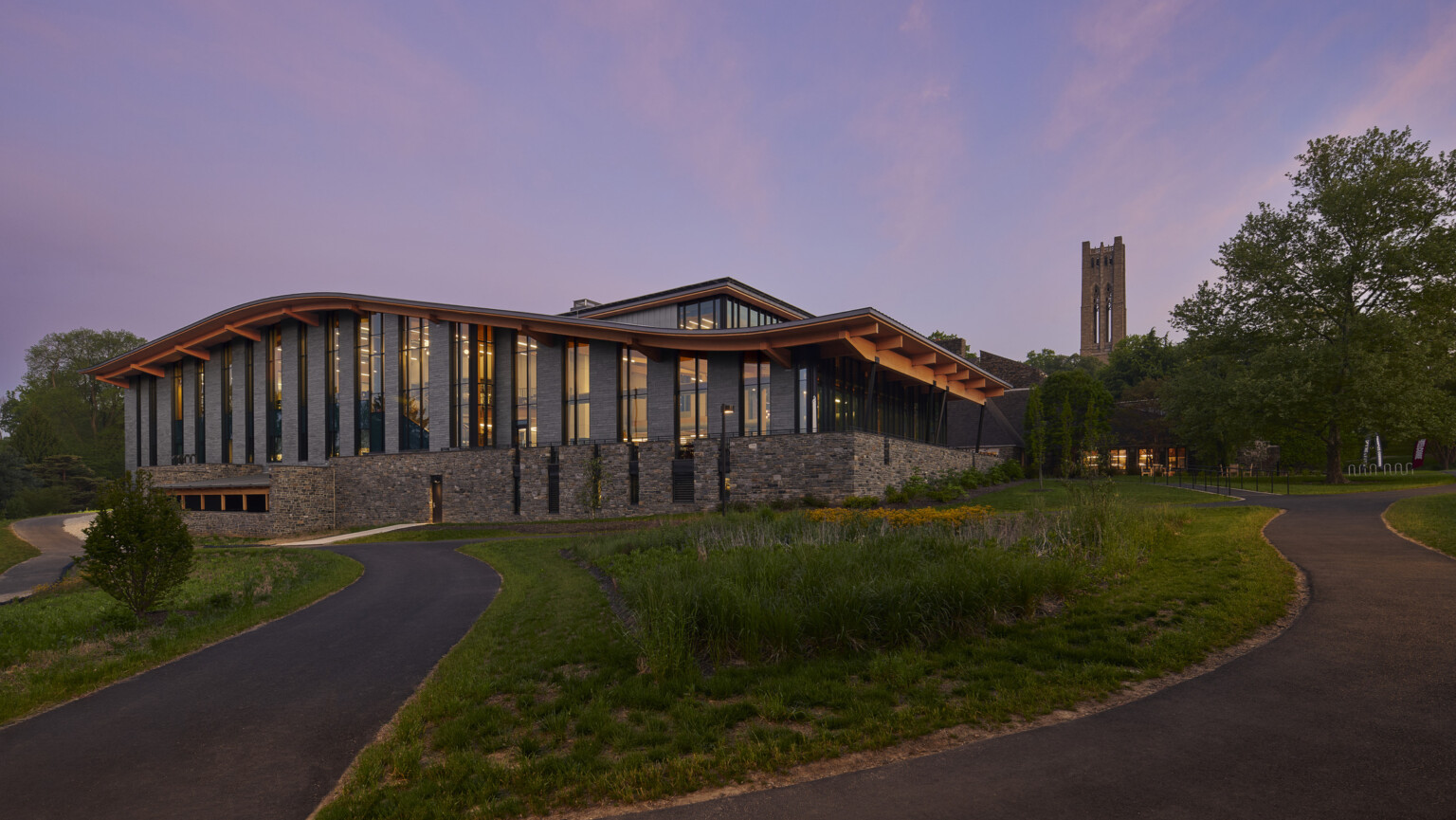Designed to spark a child’s love of learning, Douglas MacArthur Elementary School serves as a community anchor and fosters equity in the district. The school first opened its doors in 1943 to accommodate the families of those recruited to work at the local U.S. Navy facility in Alexandria. Our design weaves Douglas MacArthur’s rich history into its forest backdrop and uses natural materials and a soft natural color palette to reinforce its connections to the natural environment.
We spent time at the existing facility learning about the district’s aspirations, this campus’ thriving school culture, and operational norms to address current challenges and future goals. While practical and functional challenges were self-evident, the opportunity to give students and teachers more freedom in a learner-centered environment was a primary driver to the design. The new design fosters an engaging student experience and eases transitions to extended learning areas by interconnecting circulation around centralized outdoor learning with multi-functional single-loaded hallways. A new learning stair connects students, fosters collaboration, and provides space for guest speakers and large group gatherings with an open media center concept. All classrooms have visual connections to the tree canopy outside, including nooks where windows are lowered for the youngest learners to see outside. These strategies create a feeling of the forest indoors, enhancing biophilic connections.
The new three-story design targets net zero energy and is driven by the need to do more with less. The efficient design increases student capacity and maximizes outdoor space – a prized and finite community asset – by minimizing the building footprint and incorporating underground parking. Alexandria’s Green Building Initiative – the city’s commitment to sustainably approach public buildings – is integral to the design, as it places a focus on energy use reduction, greenhouse gas emission reductions, water efficiency, and indoor environmental quality in design. The transformed site celebrates urbanization in Alexandria, strengthens connections in and around the neighborhood, and integrates many aspects of resiliency. Engagement was key to the process. We infused the ideas and desires of stakeholders and community members to give the students an authentic space that reflects the community they are part of.
